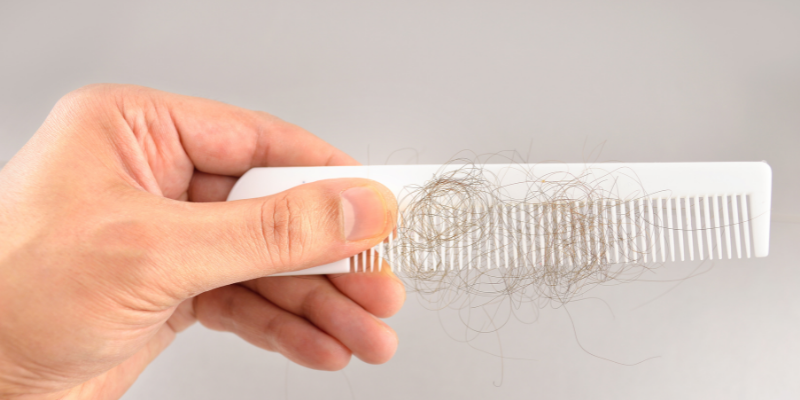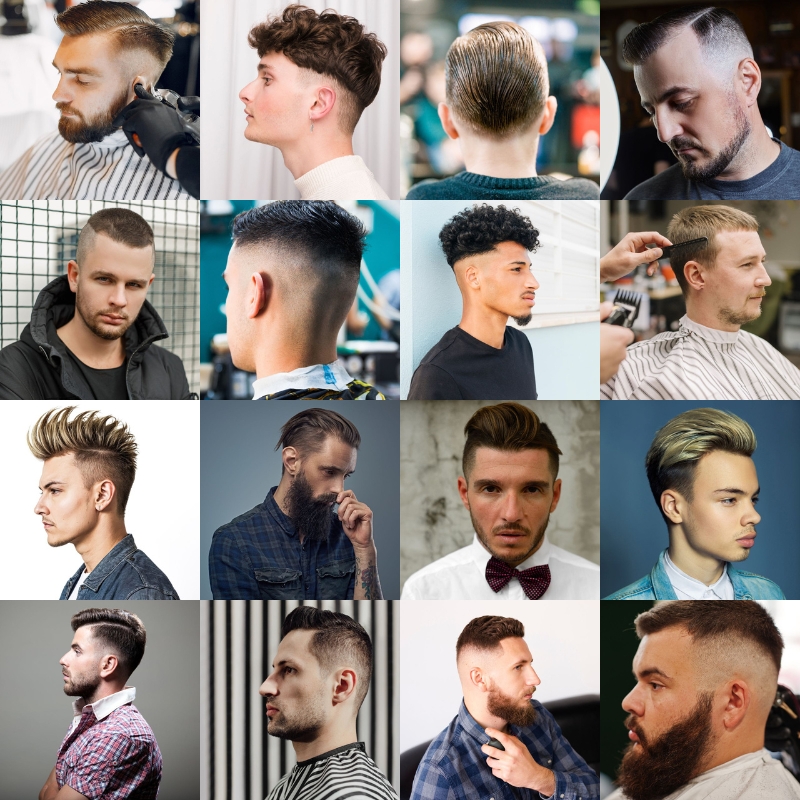Can Covid-19 Cause Hair Loss?
We are all in the middle of the COVID-19 pandemic, and one of the most unexpected problems for patients recovering from Coronavirus infection is an apparent increase in hair loss. The exact cause of hair loss is still under study, but it could lead to long-term effects if not treated in time. If you have been experiencing increased hair fall recently and wondering what to do about it, this article will help you understand its reasons and proceed with the proper treatment.
Top Reasons for Hair Fall During or Post COVID-19
Temporary hair loss after a severe illness or stress associated with it is normal. Acute stress disrupts the hair growth cycle because the body’s energy prioritizes life-sustaining functions over hair growth.
As a result, most of the hair prematurely goes into the resting phase of the hair growth cycle and then falls out. It may eventually lead to hair thinning and bald patches on the scalp. Here are the top three reasons for severe hair loss during or post COVID-19 –
-
Stress:
There is no study directly relating COVID-19 with hair loss yet. However, experts suggest that physical and emotional stress post-COVID-19 may lead to a hair loss condition known as Telogen effluvium. Telogen effluvium condition causes hair follicles to become loose and eventually fall out. Such hair fall is visible while brushing or washing your hair. The stress-induced telogen effluvium causes temporary and reversible hair loss in most patients.
-
Nutritional Deficiencies:
Nutritional deficiencies experienced during or after COVID-19 can also lead to hair loss. Iron, zinc, and vitamin deficiency in the diet are well-known reasons behind increased hair fall.
-
Post-viral Inflammation:
Many patients recovering from COVID-19 experience excessive hair fall two to three months after the viral infection. It is common in the COVID-19 recovery process and occurs because up to 50% of hair move into the resting or dormant phase of a hair growth cycle. The post-viral inflammatory response of the body may last about three months, after which hair will naturally regrow.
Now that we know the reasons that may be causing hair loss during or post COVID-19, let’s read about ways to avoid it.
How to Cope Up with Coronavirus Anxiety & Avoid Hair Loss?
The first step is to identify the exact cause of hair loss through the process of elimination by consulting a professional dermato-trichologist. The doctor will usually do a blood test to ascertain whether the hair loss is due to the COVID-19 illness, nutritional deficiency, hormonal imbalance, scalp problem, or other underlying diseases.
The good news is that if the primary trigger behind hair loss is COVID-19, it is temporary and will resolve on its own. As soon as the body begins to recover and reset, the hair growth cycle will also get back to normal. You will have to wait until the next hair growth cycle starts and returns to the ‘anagen’ or growth phase. This process may take around six to nine months. Here’s are a few tips to avoid and prevent further hair loss –
-
Manage Stress And Anxiety:
Understand that hair loss is reversible, and hair growth will regrow soon. Emotional and physical stress often aggravates the hair loss condition, so it is essential to de-stress. Practice some calming techniques to manage stress, such as meditation and Yoga. The telogen effluvium-related hair loss usually resolves on its own without any intervention.
-
Take A Balanced Diet:
A balanced and nutrient-rich diet ensures that your body gets proper nutrition post-COVID-19 recovery. Take adequate amounts of proteins, Vitamin D, iron, and other minerals in your diet to promote hair growth.
-
Avoid Smoking:
Avoid smoking as it puts additional stress on the body, which may increase hair loss.
-
Sleep Well:
Optimum sleep ensures that your body undergoes proper protein synthesis and releases hormones required for good hair growth.
-
Try Hair Supplements:
You can also try having hair supplements rich in biotin, Vitamin A, vitamin D, zinc, and iron to provide nutrients to your body needed for healthy hair growth.
-
Hair Loss Treatment:
If hair loss becomes severe, it is best to consult an experienced dermato-trichologist for a customized treatment. The doctor may recommend topical Minoxidil to encourage more hair growth and prevent further hair loss.
It is an OTC medication available in liquid or foam form and is safe to be used by both men and women to slow down hair loss. The doctor can also prescribe Finasteride or Propecia, ideal for men to prevent hair loss and stimulate new hair growth.
Conclusion
COVID-19 illness has emerged as a significant cause of hair loss in many patients. It is normal to experience a mild to moderate amount of hair loss after COVID-19. In most cases, it does not require professional treatment. However, if hair loss is severe and accompanied by other symptoms, it is ideal to seek professional medical help from a dermato-trichologist for the most suitable treatment option. Visit Oliva Skin & Hair Clinic to know more about the Post COVID-19 haircare today!
Our certified subject matter experts do extensive research and collate facts from reputed scientific journals and international studies to create informative and engaging articles related to all your dermatology concerns. They strive to help you decipher medical jargon, distinguish fact from fiction and overcome paranoia. Our qualified medical board or expert panel goes a step further to verify these facts based on their rich academic knowledge, vast clinical experience and critical industry insights to ensure you consume only medically accurate content that empowers you to make informed decisions about your hair and skin-care treatments and weight management. Check out our Editorial policy for further details
https://www.aad.org/public/diseases/hair-loss/causes/covid-19







